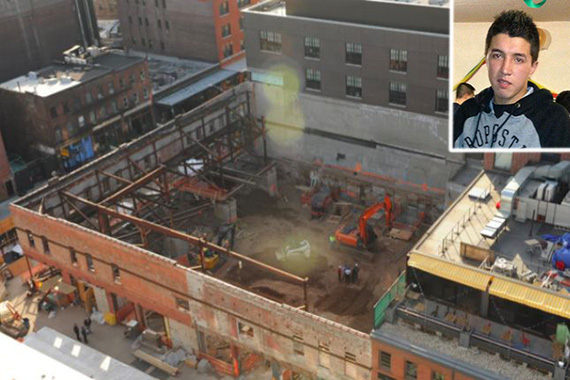The New York Times reports, a general contracting company was convicted of manslaughter and other charges on Friday in the death last year of a construction worker at a Lower Manhattan building site.
Justice A. Kirke Bartley Jr. of State Supreme Court in Manhattan found the company, Harco Construction, guilty of second-degree manslaughter and criminally negligent homicide, both felonies, and reckless endangerment, a misdemeanor, in the death of Carlos Moncayo, 22, an immigrant from Ecuador who lived in Queens. The company was acquitted of one additional charge of reckless endangerment.
Prosecutors with the Manhattan district attorney’s office argued that Harco had ignored repeated warnings about dangerous conditions at a site on Ninth Avenue in the meatpacking district, not far from the High Line. The judge agreed, and found that the company’s negligence had contributed to the collapse of a 14-foot trench on April 6, 2015, when Mr. Moncayo was crushed by thousands of pounds of dirt.
The company now faces possible fines up to $35,000, and sentencing is expected on July 13. No trial date has been set in the cases against the other defendants — two construction managers and an excavation subcontractor — who also were indicted after an investigation that involved the federal Occupational Safety and Health Administration and the city’s Investigation Department and Police Department.
The Harco case was watched closely because criminal liability has often been hard to prove in construction accidents in New York City. In 2012, the owner of a crane company, James F. Lomma, was acquitted of all criminal charges in connection with the collapse of a tower crane that killed two workers. But in a subsequent civil trial, a jury awarded the workers’ families $96 million.
After the judge read the verdict aloud in court on Friday, relatives of Mr. Moncayo, including his mother, who had traveled from Ecuador to attend the trial, broke down in tears and were hugged by Diana Florence, the lead prosecutor.
“Today’s guilty verdict should signal to the construction industry that managing a project from afar does not insulate a corporation or general contractor from criminal liability,” said Cyrus R. Vance Jr., the Manhattan district attorney.
Gary LaBarbera, president of the Building and Construction Trades Council of Greater New York, which represents construction workers, said it was a “landmark” decision because “for far too long criminally negligent and reckless contractors have been merely slapped on the wrist with no real consequences.”
But Ronald P. Fischetti, a lawyer for Harco, called the judge’s decision “extremely disappointing” and vowed to appeal.
“There was no evidence that Harco, the general contractor, was involved in any wrongdoing,” he said. “If the verdict stands, this would have a chilling effect on all law-abiding contractors in the city.”
Construction accidents have been climbing in recent years, and many of the victims were undocumented and sometimes poorly trained immigrants. A recent New York Times investigation into construction fatalities found that the rise in deaths and injuries has far exceeded the rate of new construction over a comparable period, and that in the cases in which workers died, supervision was lacking and basic steps had not been taken to prevent workers from falling. The investigation also found that because of the urgency to finish these projects as quickly as possible, the workers were forced to take dangerous shortcuts or lacked adequate training.
As a result, most of the deaths were “completely avoidable,” federal safety investigators concluded.
Five construction workers have died so far this year. Twelve workers died in 2015, according to the New York City Buildings Department, up from eight in 2014. The total has not been that high since the previous construction boom, when 12 workers died in 2007 and 19 in 2008.




